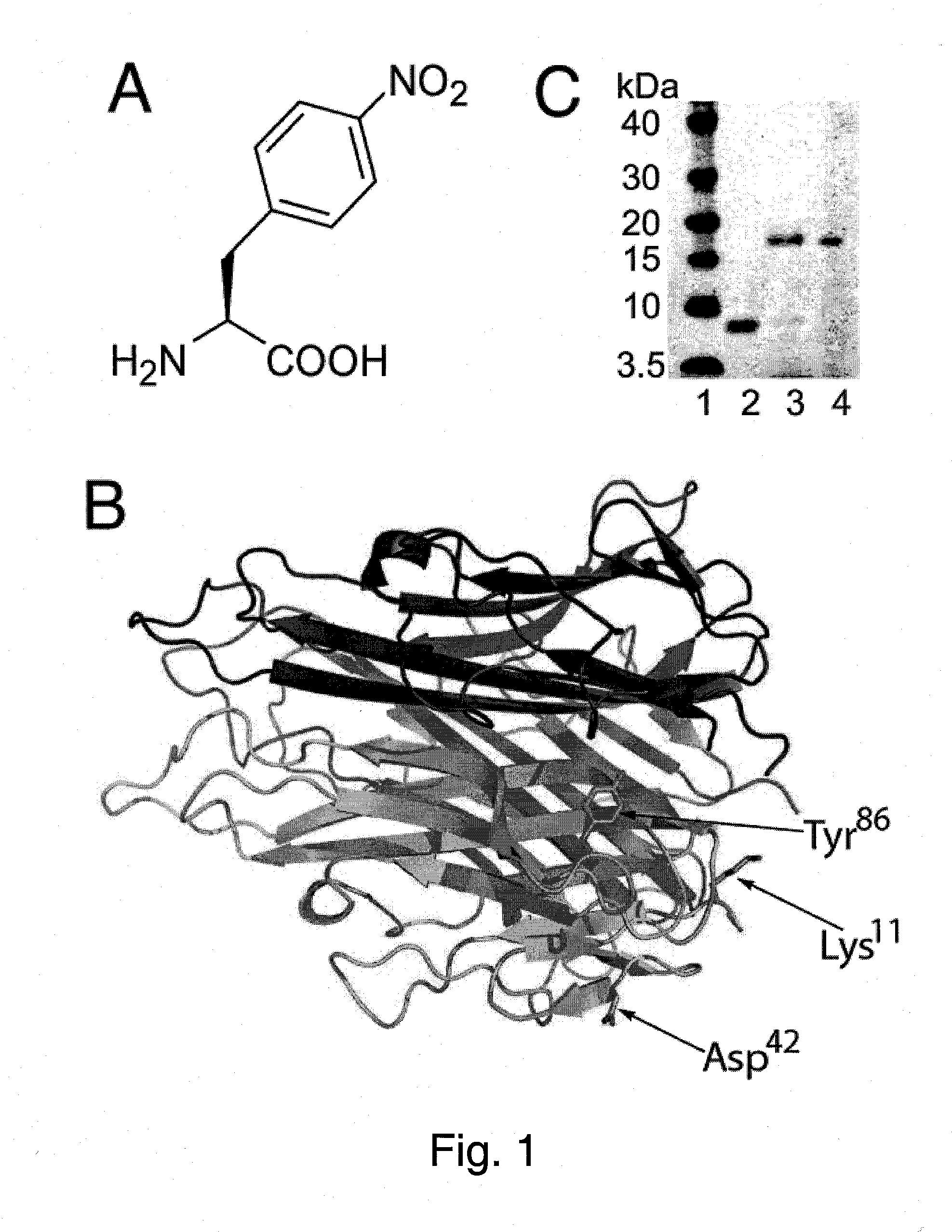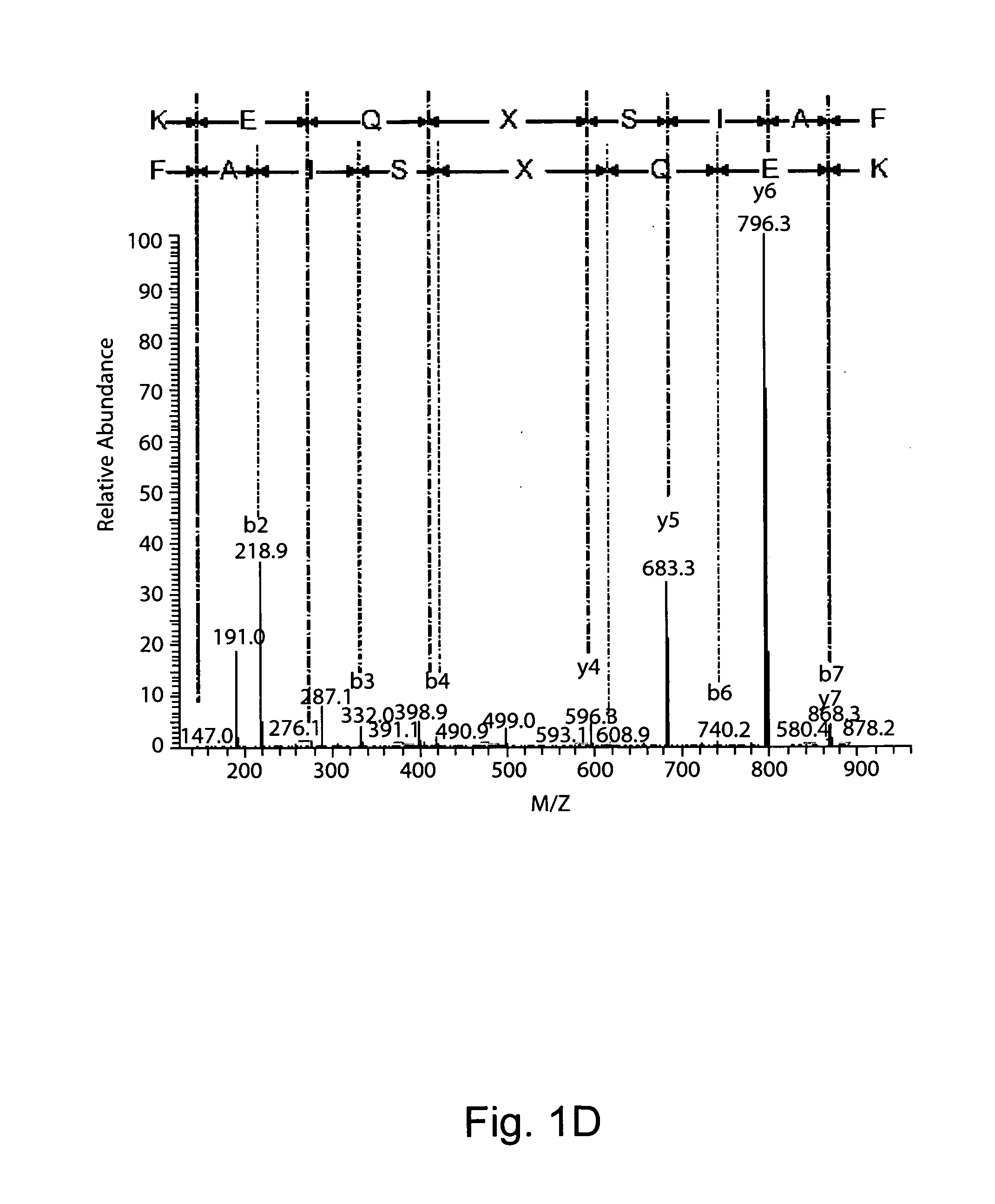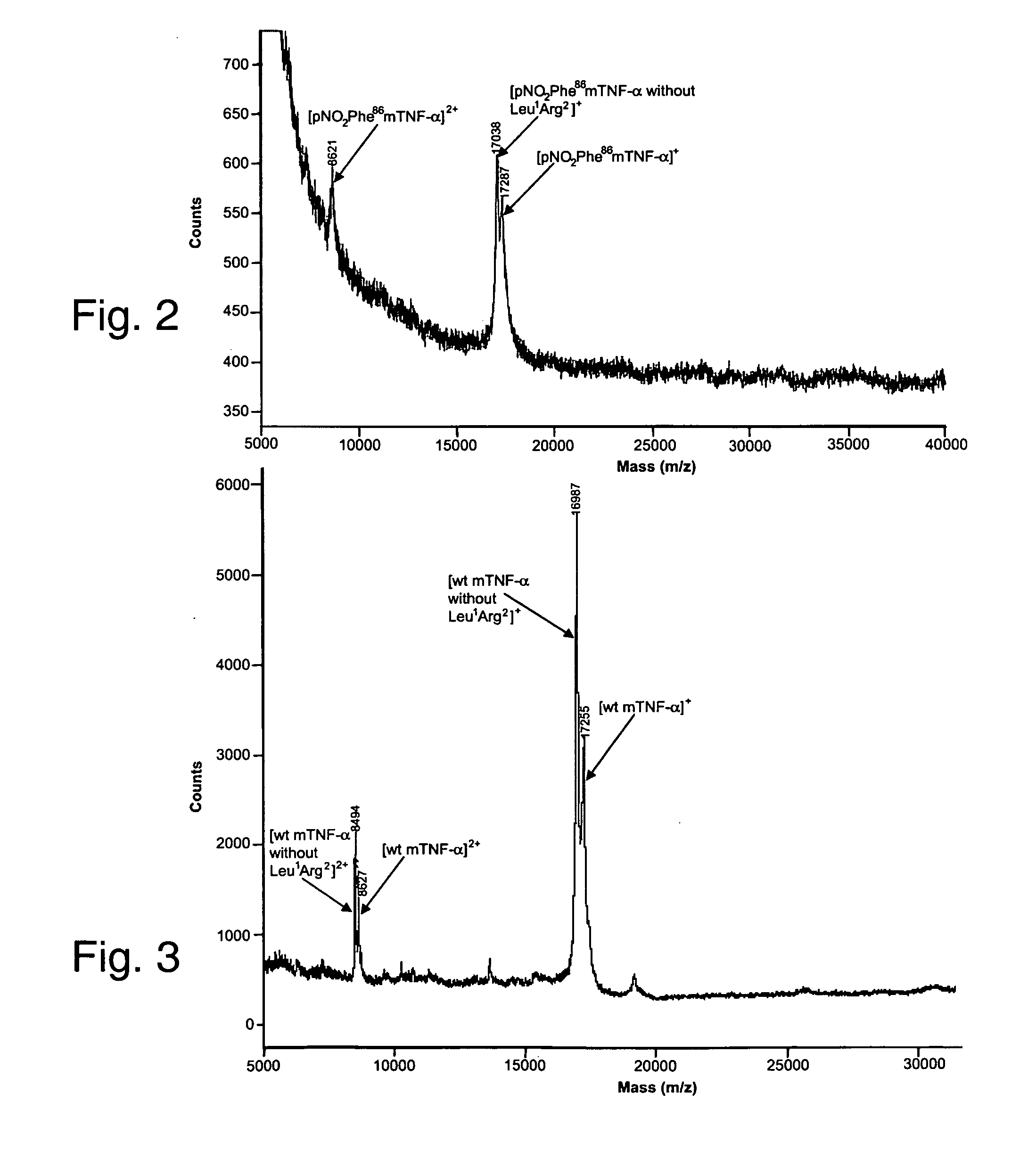Breaking Immunological Tolerance with a Genetically Encoded Unnatural Amino Acid
a genetically encoded amino acid and immunological technology, applied in the field of immunology, can solve the problems of difficult for a subject to produce a robust antibody response to a variety, elicit strong/robust antibody responses, etc., and achieve the effect of increasing the immunogenicity of specific epitopes and inducing a strong immune respons
- Summary
- Abstract
- Description
- Claims
- Application Information
AI Technical Summary
Benefits of technology
Problems solved by technology
Method used
Image
Examples
example 1
Breaking Immunological Tolerance with a Genetically Encoded Unnatural Amino Acid
[0272]The ability to selectively induce a strong immune response against self-proteins, or increase the immunogenicity of specific epitopes in foreign antigens, would have a significant impact on the production of vaccines for cancer, protein-misfolding diseases, and infectious diseases. Here, we show that site-specific incorporation of an immunogenic unnatural amino acid into a protein of interest produces high-titer antibodies that cross-react with WT protein. Specifically, mutation of a single tyrosine residue (Tyr86) of murine tumor necrosis factor-α (mTNFα) to p-nitrophenylalanine (pNO2Phe) induced a high-titer antibody response in mice, whereas no significant antibody response was observed for a Tyr86→Phe mutant. The antibodies generated against the pNO2Phe are highly cross-reactive with native mTNFα and protect mice against lipopolysaccharide (LPS)-induced death. This approach may provide a genera...
example 2
Mechanistic Studies of the Immunochemical Termination of Tolerance with Unnatural Amino Acids
[0336]Example 2 characterizes the nature and durability of the polyclonal IgG antibody response created by incorporation of an unnatural amino acid(s) into TNFα and adds additional support for the generality of unnatural amino acid-induced (e.g., pNO2Phe-induced) loss of self-tolerance. Example 2 shows that the mutation of several surface residues of murine tumor necrosis factor-α (mTNFα) independently to p-nitrophenylalanine (pNO2Phe) lead to a T cell-dependent polyclonal and sustainable anti-mTNFα IgG autoantibody response lasting for at least 40 weeks. The Example shows that the antibodies bound multiple epitopes on mTNFα and protected mice from severe endotoxemia induced by lipopolysaccharide (LPS) challenge. Immunization of mice with a pNO2Phe43 mutant of murine retinol binding protein (RBP4) was also shown to elicit a high titer IgG antibody response, which was cross-reactive with wild...
PUM
| Property | Measurement | Unit |
|---|---|---|
| flow rate | aaaaa | aaaaa |
| molecular weight | aaaaa | aaaaa |
| temperature | aaaaa | aaaaa |
Abstract
Description
Claims
Application Information
 Login to View More
Login to View More - R&D
- Intellectual Property
- Life Sciences
- Materials
- Tech Scout
- Unparalleled Data Quality
- Higher Quality Content
- 60% Fewer Hallucinations
Browse by: Latest US Patents, China's latest patents, Technical Efficacy Thesaurus, Application Domain, Technology Topic, Popular Technical Reports.
© 2025 PatSnap. All rights reserved.Legal|Privacy policy|Modern Slavery Act Transparency Statement|Sitemap|About US| Contact US: help@patsnap.com



